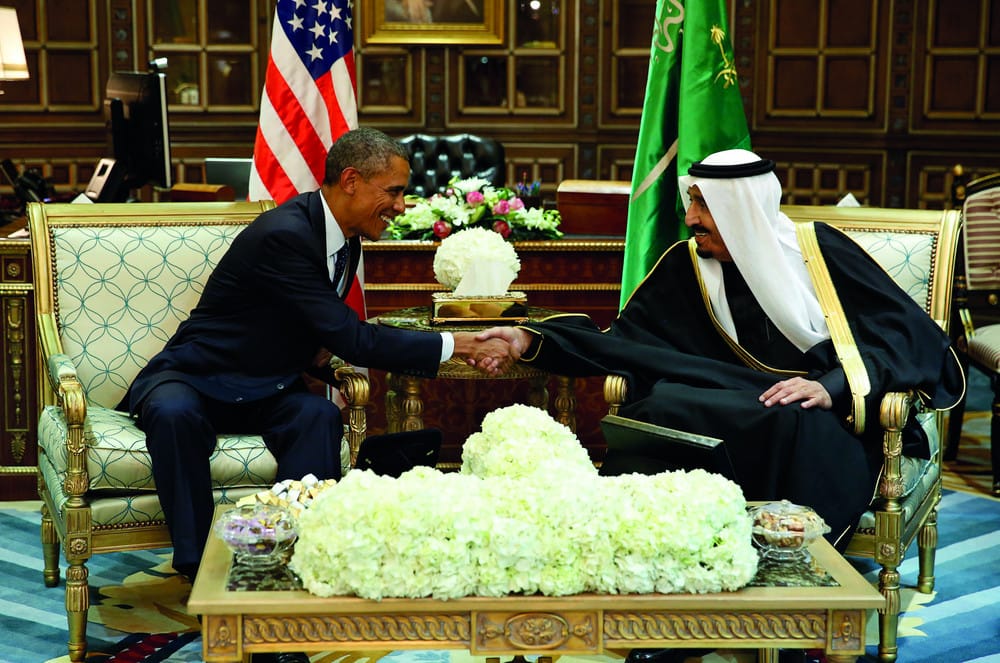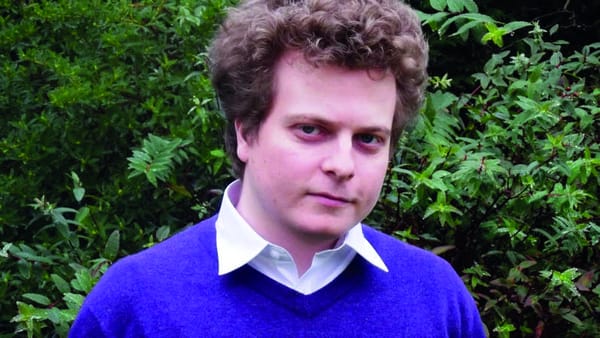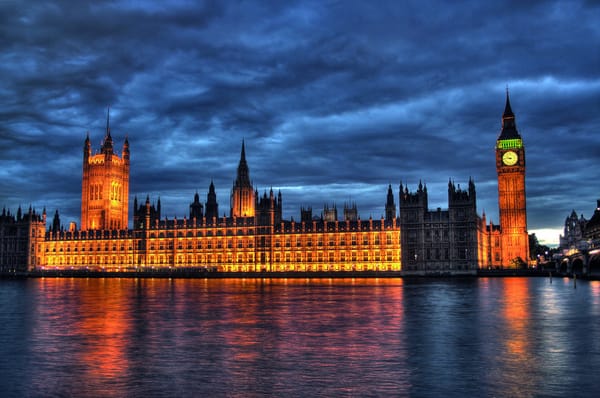Oh oil, is there nothing you can’t do?
Joshua Renken comments on the relationship between the West and Saudi Arabia

In the last two decades the Middle East has experienced Sunni and Shia suppression, the toppling of dictators, Western intervention, Western withdrawal and the spread of fundamentalist terrorism.
The problems in the region are vast, systemic and complicated. And while I don’t pretend for a second to fully understand what is going on, I want to comment on the West’s foreign alliances with Saudi Arabia.
Saudi Arabia is the world’s dominant oil exporter and the only country named after its ruling royal family, The House of Saud. It is one of the least democratic states in existence and a place where women are prohibited from driving, voting or even leaving their house without a male chaperone.
There are no jury trials in Saudi Arabia, most trials are held in secret and courts observe few formalities. Organizations such as Amnesty International and Human Rights Watch have condemned Saudi Arabia’s human rights record against women and ethic minorities and criticised the severe punishments handed out by the criminal justice system, which is based on a hardline and literal form of Shari’ah law.
This oil-rich kingdom’s brutality is reflected in the number of public executions that are carried out there. According to a report by Human Rights Watch (HRW) the late Abdullah bin Abdulaziz Al Saud, former King of Saudi Arabia, oversaw the beheading of 87 individuals, by sword, in the last year alone.
Many of those killed had committed non-violent crimes including drug smuggling, sodomy, apostasy and even ‘sorcery’. The state has also tortured and killed critical journalists.
One particular case in Saudi Arabia has received a lot of media attention recently. Raif Badawi is a writer, activist, blogger and Saudi national who has openly criticised his country’s regime for several years. Convicted of the crime of ‘insulting Islam’, Badawi has been sentenced to 1000 lashes, ten years in prison and a fine. The first 50 lashes were administered on 9th January 2015. His wife, Ensaf Haidar, has said that Raif will not survive the floggings.
And all this is unlikely to change any time soon. After the death of King Abdullah in January his half-brother, Salman, assumed the throne to become King and Prime Minister of Saudi Arabia. King Salman is not expected to be a reformist in the country and has vowed to continue the “correct” policy of his predecessor, stating that democracy “should not be imposed in Saudi Arabia”.
In early February Prince Charles met with King Salman during a six day tour of the Middle East, where they “exchanged cordial talks and reviewed bilateral relations” between the countries.
To be clear, this is our heir to the British monarchy meeting with the leader of an Islamic state that sanctions the execution of prisoners by beheading with a sword in public. This is simply barbaric. It is a medieval, ultra-conservative system, underpinned by the most extreme interpretation of Islam, Wahhabism.
Just days after King Abdullah’s death, President Barack Obama took a trip to Saudi Arabia to pay his respects and cement ties with King Salman. During the trip Obama did not even raise the issue of the country’s human rights abuses and backward attitudes to gender equality. A few days later the president was in India giving a speech urging the country to be more progressive about women’s rights. This kind of double standard approach to foreign relations on the world stage is shameful.
That the British and American governments cosy up to the Saudis in full knowledge of the appalling circumstances in which many of its citizens endure is a disgrace that has been criminally under reported for years. That the UK and US do this while lecturing other nations about democracy and human rights just adds an extra layer of naked hypocrisy to the situation.
So why does this happen? Put simply: oil, trade and political stability. Large and powerful countries such as Saudi Arabia – the world’s petrol station – can get away with atrocities that less influential countries could not because of their global significance. That’s the way things seem to go. We saw it in the failures of the League of Nations, we see it now in the Middle East, and we will regrettably see it in the future.
That said, I’m not necessarily trying to pin the blame on ‘evil’ Western leaders. I get it. The alternative to upholding one’s principles in all circumstances is far messier. In the current financial climate no one is prepared to let their economy take a hit by imposing trade sanctions. Money doesn’t talk. It screams.
Saudi Arabia is the largest and most important producer in the Organization of Petroleum Exporting Countries (OPEC), the bloc that controls almost half of the world’s oil. The UK does not buy oil from the Saudis, but Saudi Arabia is the UK’s primary trading partner in the Middle East and our largest arms buyer, with joint ventures between British and Saudi companies worth tens of billions of pounds each year. The US however imports hundreds of thousands of barrels of oil from Saudi Arabia every day.
Since the UK would never make meaningful strides to address the repulsive Saudi Arabian government without agreement from the US – who are not prepared to see a spike in oil import prices – there will be no bold action from either country.
Countries such as Saudi Arabia are considered criminal governments one minute and trading partners the next, which makes Western governments guilty by tacit consent. It is insincere foreign policy that leads me to wonder, “Oh oil, is there nothing you can’t do?”. Our ongoing relationship with this vile government demonstrates that economic interests dictate principles. It proves that we are only as morally upstanding as our national wallet will allow, and right now our international relations are abounding with hypocrisy.
I just look forward to the day where the UK, US and other democratic nations no longer need to trade or buy oil from countries such as Saudi Arabia, so that we can find the backbone to stand up to the heads of terror states and severe all ties with these thugs. That moment can’t come soon enough.








